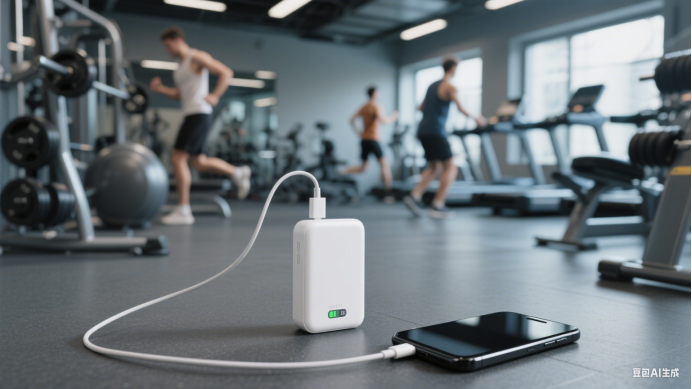
Starting on June 28th, passengers on domestic flights in China are no longer allowed to carry certain power banks. The Civil Aviation Administration of China (CAAC) announced this emergency measure, prohibiting any power bank lacking a clear China Compulsory Certification (CCC) mark, those with unclear markings, or models/batches subject to official recall.
This decision came after numerous concerning incidents globally involving these devices aboard aircraft. In January, a fire sparked by a power bank in passengers’ luggage severely damaged a Busan Air plane. In March, another flight was diverted (改道) to another airport after a power bank caught fire in an overhead bin. Within China’s civil aviation system alone, 15 cases of power banks smoking or catching fire were recorded in the first half of 2025, posing serious threats to flight safety.
The dangers originate from the lithium (锂) batteries inside power banks. External factors like high temperatures, being crushed, or impact can cause internal short circuits, generating intense heat. This accumulated heat may lead to “thermal runaway”, resulting in rapid fires or explosions that are difficult to extinguish.
Compounding these inherent risks, recent government inspections uncovered widespread quality issues. Testing revealed that 43.6% of sampled power bank batches failed safety standards. Many manufacturers produce substandard devices using poor-quality materials and lacking essential safety features like protection against overcharging or against short circuits. Due to these findings, authorities have revoked or suspended the 3C certifications for products of several manufacturers.
For consumers with potentially unsafe power banks at home, Professor Chen Lei advises discontinuing use immediately if the device shows any warning signs. These include bulging, leaking, strange smells, overheating, odd noises, sudden power loss, charging failure, or damaged ports. While the saltwater soaking method, sometimes used in labs to slowly discharge risky batteries, is known, safety expert Mao Wutao strongly warns against its use at home. This process can release potentially harmful gases, especially in spaces with poor air circulation.
Meanwhile, airports have set up specific areas where passengers can willingly throw away, temporarily store, or mail non-compliant power banks caught during security checks. Airlines and airports are also actively informing travelers about these now-in-effect regulations and the critical safety reasons behind them, working towards safer skies for everyone.
原创编写 版权所有 侵权必究! 每日更新 个性化阅读 英语飙升!


 更多优质学习内容
更多优质学习内容

